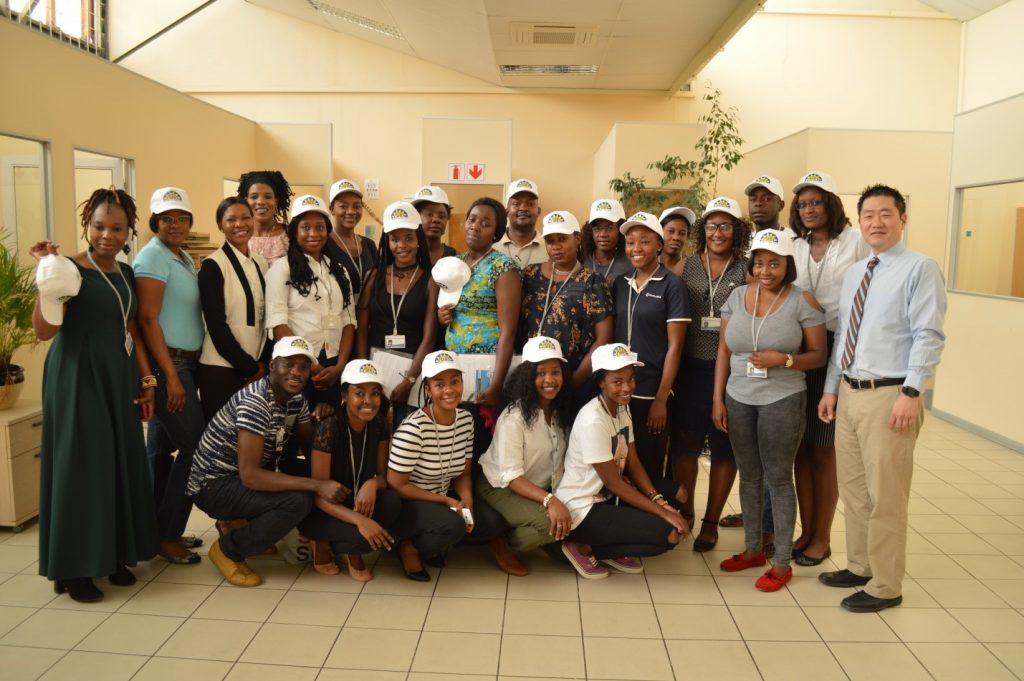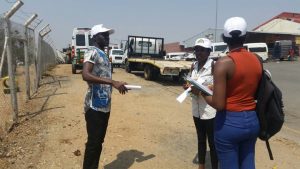
Rapid Assessment: Priorities for Local Aids Control Efforts (PLACE)
How do we know where to find key population community in Windhoek?
Priorities for Local Aids Control Efforts (PLACE) is a rapid assessment tool to monitor and improve HIV/AIDS prevention programs in countries with high prevalence of HIV/AIDS coupled with resource constraints such as Namibia. PLACE is ideal for targeting priority areas to prevent new infections and identify gaps in current prevention strategies.
Namibia has a generalized HIV epidemic, but certain populations experience a greater disease burden and risk for infection based on their behaviour. Most notably, female sex workers (FSWs), transgender (TG) women, and men who have sex with men (MSM) have higher prevalence rates compared to the general population. Previous studies have examined these populations through their social networks, but this study used a time-location sampling methodology to:
- Identify places where key populations (KP) socialize and can be reached with outreach services and
- Calculate the size of the populations for FSWs, MSM, and TG women in Windhoek, Namibia. The study was designed to provide results to inform KP programming, both in reach and type.
The study design is based on PLACE methodology, which was developed by MEASURE Evaluation, a project funded by the United States Agency for International Development (USAID) and the United States President’s Emergency Plan for AIDS Relief (PEPFAR). The methodology is a It is a multistep process:
- The first step is to ask community informants where people go to socialize and meet new sexual partners.
- The second step is to map and verify those spots with informants who are knowledgeable about the spots.
- The last step is to conduct interviews with patrons and workers one by one at those spots and collect data on the respondent’s knowledge, attitudes, and behaviour.
Although FSWs, MSM, and TG women were the populations of interest for our study, they were not targeted or asked to self-identify. This allowed for a less stigmatizing process and for data to be collected with the general population at those spots.
Key findings:
- Five hundred seven community informant interviews were conducted, in which the informants identified 173 unique spots in the nine constituencies of Windhoek where people (notably KPs) socialize and meet sexual partners. Then, 145 of those spots were verified through interviews at 129 spots with spot informants. Afterwards, patrons and workers were interviewed at those same spots.
- Most spots identified by community informants and then verified were bars (both formal and informal), street sites, and shopping centres.
- According to spot informants, FSWs frequented half of those spots; MSM frequented 28 percent of them; and TG women frequented 61 percent of them.
- Respondents said that women met new sexual partners at 72 percent of spots and men met new partners at 61 percent of spots.
- People have sex on-site at 17 percent of spots.
- At 58 percent of spots there had never been any HIV/AIDS prevention activity.
- Of the spots that had had any prevention activities in the past six months, for the largest proportion, that activity was condom distribution.
- Only 6 percent of spots had had HIV testing in the past six months.

These data suggest that:
- FSWs are at greatest risk for acquiring HIV based on individual behaviour, but they also suggest that it is not just KP members who take risks in their sexual behaviour and partnerships.
- These data can help KP programs target their activities to the places where KP members can be found and highlight specific areas where prevention could be improved, such as testing, condom education, and linking to health services.
The findings from this study are currently being used in the program to improve reach and access to services by key populations. For example, new hot spots frequented by key populations are targeted for outreach activities.
wordpress theme by initheme.com

